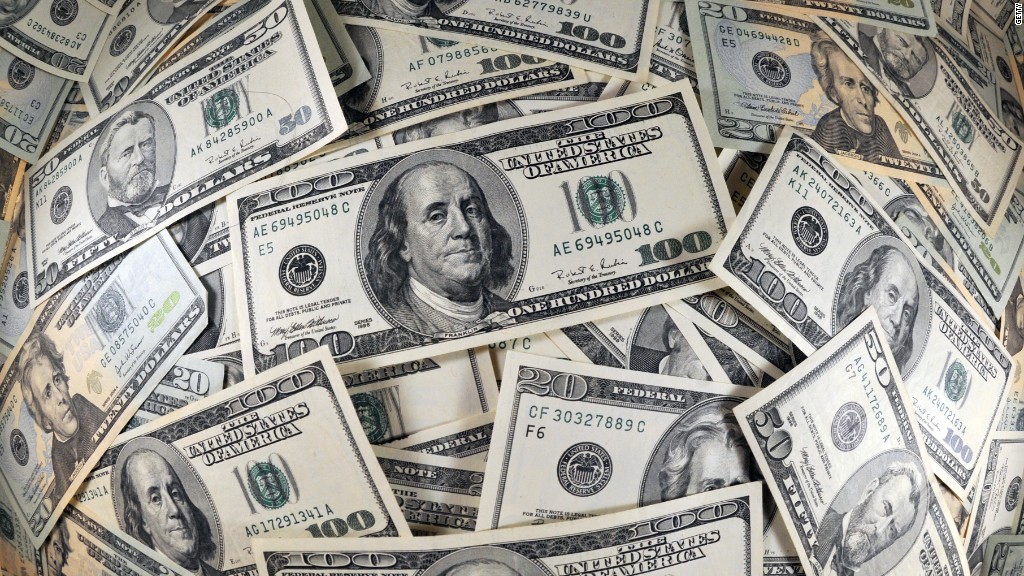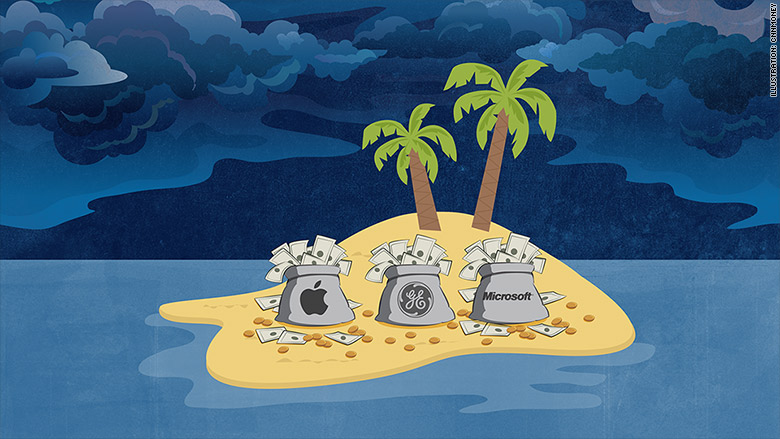
A slew of big companies, including Apple, GE and Microsoft, are at risk of being slapped with billions in tax bills if President Obama follows through on his plan to tax their overseas cash piles.
Obama's 2016 budget outlines plans to raise $238 billion by imposing a one-off, 14% tax on about $2 trillion in earnings that U.S. companies have accumulated in foreign countries.
Many companies that earn money overseas prefer to keep the cash offshore and avoid bringing it back to the U.S. to avoid high American tax rates, which stand at about 35%.
Apple (AAPL) is expected to be a key target for the proposed tax, since the company now has $157.8 billion in cash sitting overseas, after reporting the biggest quarterly profit in corporate history this month.
General Electric (GE) also confirmed it has about $110 billion offshore, while Microsoft (MSFT) holds about $82.1 billion overseas.
Other companies known to keep money offshore include tech and pharmaceutical giants such as Pfizer (PFE), Merck (MRK), Johnson & Johnson (JNJ), Google (GOOG) and IBM (IBM).

But Obama's one-time tax, and his plan to impose a 19% tax on future overseas earnings, is facing criticism from all sides. First and foremost, experts don't think they'll be implemented.
"I don't think this is going to pass," said Kelly Phillips Erb, a tax attorney in the Philadelphia area, who said the proposed tax rate of 19% is unrealistically high.
"We've been talking about Apple['s tax rates] since Steve Jobs was alive," yet the U.S. government has been unable to figure out an effective way to tax earnings, said Erb.
"What is actually taxable is so hard to pin down," she said, noting there are countless intricacies involved with figuring out what earnings need to be taxed and how they will be taxed.
Meanwhile, Matt Gardner, executive director at the Institute on Taxation and Economic Policy, says the proposed tax rates are too low.
"It's helpful that the [U.S.] administration has identified a way to tax the profits that multinationals are stashing offshore. This is an important part of tax reform. But I think these rates are too low," he said.
"This is a starting point for a conversation" about corporate taxation reform, he said.
Apple's CEO Tim Cook has said publicly that he supports an overhaul of the U.S. corporate tax system, even if it means higher taxes for his company.
During testimony to the U.S. Senate in May 2013, Cook said he supported reasonable taxes on foreign earnings that would allow companies to bring money back to the U.S.
GE argues that it keeps money offshore to fund its overseas operations.
"We reinvest our foreign earnings outside the U.S. because we are in more than 175 countries and we need to be able to fund those non-U.S. business operations," said a GE spokesperson.
Microsoft refused to comment on new Obama's tax plan. However, according to a statement by the company's tax head from late 2012, Microsoft believes U.S. tax rules are "outdated" and in need of reform.

